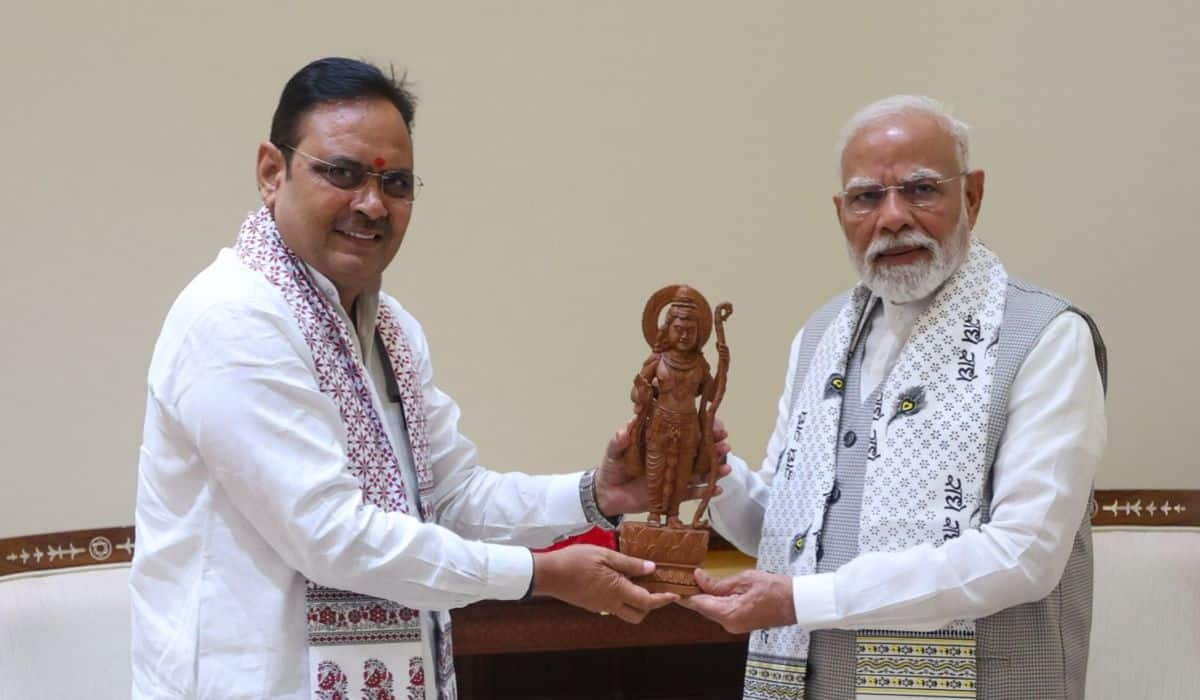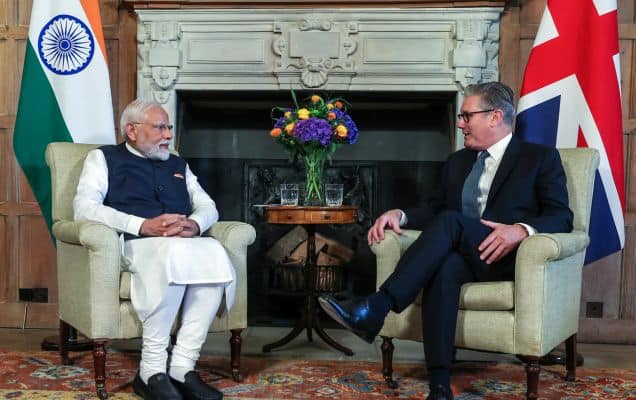Prime Minister Narendra Modi visited Hindustan Aeronautics Limited (HAL) in Bengaluru today, as the state-run plane maker experiences exponential growth in manufacturing prowess and export capacities. PM Modi completed a sortie on the Indian Air Force's multirole fighter jet Tejas.
According to the latest reports, HAL has transformed into a formidable 1.35 lakh crore company under PM Modi's leadership. The fact that its share prices have multiplied by five times since 2013 stands as a testament to its remarkable growth. In addition to expanding its global footprint—such as the recent opening of a regional marketing office in Malaysia—HAL is also in the process of setting up a business division to boost exports.
The transformation of HAL, which is known as the backbone of the Indian Air Force, is part of a broader plan—Modi government’s resolute push towards Aatmanirbharta in defence. This thrust has combined multiple factors ranging from developing indigenous technologies, establishing a robust domestic manufacturing ecosystem, implementing structural reforms and enhancing overall combat strength.
Before 2014, the defence sector had been plagued by issues like lack of investment, stagnant innovation and research environment, and the absence of an overall vision to utilize the potential of a strategically important field. This led to an increased dependence on foreign imports for the country’s defence requirements. However, PM Modi's government's commitment to self-reliance in security and strategic capabilities has had a positive impact on the defence sector.
Along with Make in India, the Defence Acquisition Procedure (2020) has tremendously pushed domestic manufacturing by maximizing acquisition of defence equipment through indigenous sources. The government has also introduced four ‘positive indigenization lists’ of defence equipment and platforms besides earmarking separate funds for procurement from indigenous sources. Going further, two defence industrial corridors have been set up in Uttar Pradesh and Tamil Nadu to catalyze indigenous production of defence and aerospace equipment.
A positive shift in India’s defence procurement behavior is evident:
• The expenditure on defence procurement from foreign sources has decreased from 46% in the fiscal year 2018-19 to 36% in the fiscal year 2021-22.
• Concurrently, the share of domestic procurement in the total procurement has seen an upward trend. It has risen from 59% in the fiscal year 2019-20 to 64% in the fiscal year 2020-21.
The changing dynamics in the FDI inflow in the defence sector are noteworthy:
• From 2001 to 2014 (14 years), the FDI flow was reported as Rs 1,382 crore.
• Since 2014 the FDI inflow has increased almost 2.5 times, amounting to Rs 3,378 crore.
The landscape of research and innovation has also undergone a profound shift, bringing in a new era of novelty and dynamism. Defence R&D, including DRDO test facilities, has been opened up for industry, startups and academia with 25% of defence R&D budget allocated for this purpose. Initiatives like iDEX engage startups, MSMEs, and individual innovators among others, and help activate the local industry and enterprise. An amount of Rs. 1,500 crores have also been earmarked towards procurement from start-ups, in particular. In addition, DRDO is involved in equipping the youth with relevant skills for defence industries.
The government’s concerted push has propelled us to a juncture where we are actively producing our own defence aircrafts and equipment. INS Vikrant, light combat aircraft Tejas, Akash and BrahMos missiles, main battle tank Arjun, artillery gun system Dhanush, and Pinaka rocket are among the many shining examples of India becoming self-reliant.
Defence exports have also registered an impressive eight-fold growth in the last six years—from Rs. 1,521 crores in 2016-17 to around Rs. 16,000 crores in 2022-23. Notably, the private sector contributes almost 70% of total exports. The recent deal with the Philippines for the export of indigenous BrahMos supersonic missiles attests to India’s potential and heightened credibility in defence exports.
In addition to these efforts, the government has addressed structural hindrances to the growth of the defence industry. Changes like introduction of Chief of Defence Staff and corporatization of the Ordnance Factory Board have been key in this area. Other reforms like One Rank One Pension and entry of women into combat roles have boosted social sentiment and expanded the potential recruiting pool by about 100%. In addition, the Vibrant Villages programme adds another layer to the government’s artillery towards building security infrastructure.
Most importantly, the surgical strikes after the Uri attack and the Balakot strike on terrorist camps inside Pakistan are not only unique reflections of PM Narendra Modi’s New India but also provide much-needed confidence to the armed forces to serve their country with vigor and valor.
All this has been made possible through a synergistic blend of historic decisions, calculated risks, and strategic reorganization. Laying out his vision for future, PM Modi has set out a target of achieving defence exports worth Rs. 35,000 crores in the next five years—making India a net exporter of defence equipment. As PM Modi punctuates India’s growth story with reforms and renewal, Aatmanirbharta in defence is a now living reality.
















